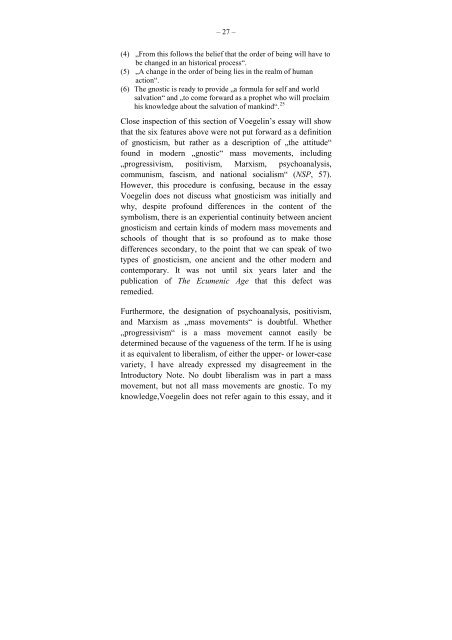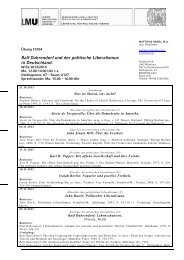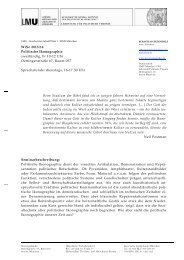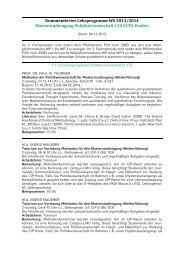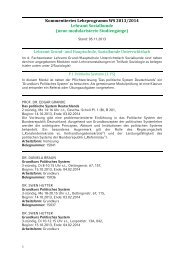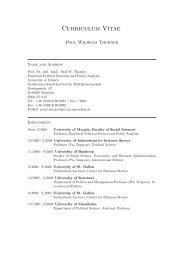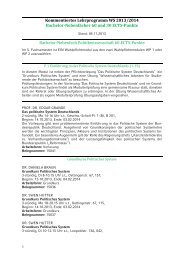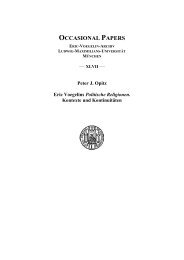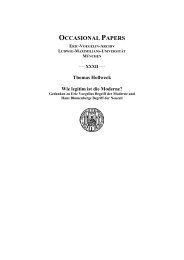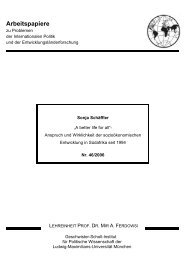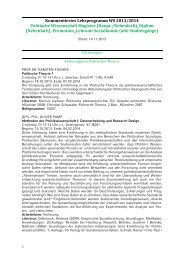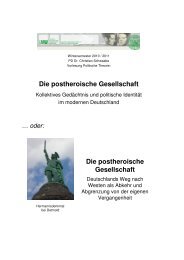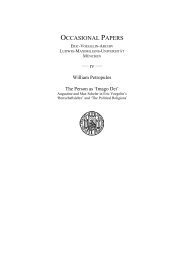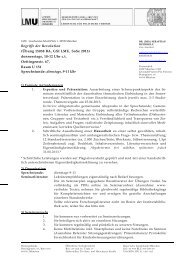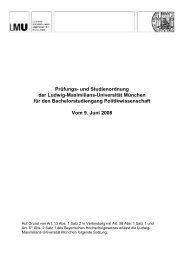Eric Voegelin.pdf - Geschwister-Scholl-Institut für Politikwissenschaft
Eric Voegelin.pdf - Geschwister-Scholl-Institut für Politikwissenschaft
Eric Voegelin.pdf - Geschwister-Scholl-Institut für Politikwissenschaft
Create successful ePaper yourself
Turn your PDF publications into a flip-book with our unique Google optimized e-Paper software.
– 27 –<br />
(4) „From this follows the belief that the order of being will have to<br />
be changed in an historical process“.<br />
(5) „A change in the order of being lies in the realm of human<br />
action“.<br />
(6) The gnostic is ready to provide „a formula for self and world<br />
salvation“ and „to come forward as a prophet who will proclaim<br />
his knowledge about the salvation of mankind“. 25<br />
Close inspection of this section of <strong>Voegelin</strong>’s essay will show<br />
that the six features above were not put forward as a definition<br />
of gnosticism, but rather as a description of „the attitude“<br />
found in modern „gnostic“ mass movements, including<br />
„progressivism, positivism, Marxism, psychoanalysis,<br />
communism, fascism, and national socialism“ (NSP, 57).<br />
However, this procedure is confusing, because in the essay<br />
<strong>Voegelin</strong> does not discuss what gnosticism was initially and<br />
why, despite profound differences in the content of the<br />
symbolism, there is an experiential continuity between ancient<br />
gnosticism and certain kinds of modern mass movements and<br />
schools of thought that is so profound as to make those<br />
differences secondary, to the point that we can speak of two<br />
types of gnosticism, one ancient and the other modern and<br />
contemporary. It was not until six years later and the<br />
publication of The Ecumenic Age that this defect was<br />
remedied.<br />
Furthermore, the designation of psychoanalysis, positivism,<br />
and Marxism as „mass movements“ is doubtful. Whether<br />
„progressivism“ is a mass movement cannot easily be<br />
determined because of the vagueness of the term. If he is using<br />
it as equivalent to liberalism, of either the upper- or lower-case<br />
variety, I have already expressed my disagreement in the<br />
Introductory Note. No doubt liberalism was in part a mass<br />
movement, but not all mass movements are gnostic. To my<br />
knowledge,<strong>Voegelin</strong> does not refer again to this essay, and it


